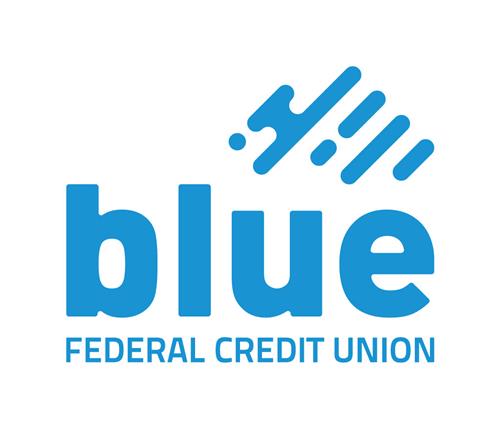2013 Four-Way Test Essay - Miranda Oliverius
The Four-Way Test asks whether what you say or do is the truth, fair, building goodwill and better friendships and whether it will be beneficial. These four ethical traits are really important to the cultivation of successful, well reputed people and organizations. One leadership position I have had the opportunity to fulfill was being a section leader in band. Band was the only activity I felt even slightly comfortable in joining my freshman year, and even the idea of going to band camp terrified me. However, by the time I reached the end of band camp, I realized that band wasn’t so scary and that band would make me grow as a musician, and as a person. A year and a half later, when I had the opportunity to try out for a section leader position, I jumped at the chance, thinking, “Oh, I can totally do this- I know how to play flute and I am totally comfortable being a leader now.” However, when the first day of summer marching came around, I addressed my section as their leader and quickly realized that I might’ve been a good flautist, but I was really unknowledgeable about how to run music rehearsals or how to find a happy medium between “fun-loving peer” and “strictly business section-leader”. Being a section leader brought a lot of challenges, but in overcoming them, I maintained good ethics. My personal experience as the flute section leader in band for the past two years has been one example of my use of the Four-Way Test in my life.
As a leader, you’re supposed to be someone to look up to; someone with integrity who tells the truth. Parents tell their children to always tell the truth, saying this as if it’s the easiest task in the world. However, life quickly proves that telling the truth can be difficult. One example of this during my time as a section leader, where telling the truth was difficult was when a fellow section leader came to practice drunk. This situation would be sticky in any case, but it was especially difficult because this person had been a friend of mine since elementary school. However, a couple of other section leaders and I reported the issue to the directors because we knew that it would be dishonest and that it would set a bad example for the band if we let it go. Telling the truth, while not easy, does have rewards. In this incident, reporting the incident instead of covering it up meant that I eased my conscience, earned more respect and credibility in the director’s eyes and gave my friend a nudge in the correct direction. Because the truth is an important factor in many aspects of band, including reporting absences or any incidents like the one with my friend, it means that we have increased respect for each other and that we have maintained a good reputation with other schools.
While band is often touted by directors as a true team sport- one where no one has to sit on the bench- it definitely has winners and losers. However, in my role as a section leader, I’ve worked hard to maintain fairness in the flute section. One example of this occurred this past summer when I was assigning parts to the flutes. There are generally two parts for flute, and traditionally we’ve given the first part to the best players and second to the less talented members. However, when I was picking parts this summer, I assigned them by randomly drawing names instead of requiring any audition or choosing the people I thought were “good”. By making the division of parts more fair, our section achieved some really good results for us as a section: elements of competitiveness were diminished and some players who had been looked down on were given a chance to shine as firsts. Later in the summer, my ability to apply fairness was tested when a director came in and started naming all the girls that she felt weren’t good enough to be on first, or were too skilled to be “limited” to the second part. The director wasn’t doing anything that was unjustified, she was just enforcing tradition. However, I chose to stand up to her and explain my reasoning. At the end of this episode, our section stayed on the parts I’d assigned and we came out a stronger team because of it.
Being a section leader has really helped me build goodwill and better friendships both in band and outside of music. One of the things that I felt was a really important objective for me as a section leader was being a positive, encouraging force within my section and the band. Even after three hours of marching and playing, I made a point to compliment band members and to not complain so that a positive attitude would spread through the band. This built goodwill in the band because when we stopped complaining, we found that the common goal of the whole band was to have fun and be skillful musicians that would perform a great show at the end of the season. When I was first given the flute section leader position, I was afraid that it might cause tension between my fellow flutes and myself since I’d be in a position of authority. In the end, being a section leader actually helped me build better friendships. This role in the section made it easier for me to reach out to players I hadn’t talked to before. With both old and new players, I now was able to introduce myself, get to know them and make new impressions. I brought back an old flute tradition that we had abandoned mid-way through my freshman year- daily questions. This activity meant asking a random, fun, ice-breaking question at the beginning of each rehearsal and having every girl share an answer. Not only did I learn new things about people, I also built better friendships because people started turning to me for help or comfort when they had a bad day or a problem. Being given a leadership position helped me build goodwill through the influence I had on the rest of the band and it helped me build better friendships with people.
My role as a flute section leader was beneficial for myself, my section and the band. Being put in a position of leadership benefitted me because it helped me become a better role model and cultivated traits of open-mindedness and diplomacy. Being a leader made me more conscious of my punctuality, attitude and personal carriage. Being on time to band became a bigger priority for me, I left cynicism and pessimism at home and started walking with posture, confidence and held my flute at the correct angle 100% of the time instead of 95%. My leadership was helpful to my section because I enforced a positive attitude and a team-oriented mindset instead of self-interest. I became a person they could rely on as a fellow flute and as a friend. Within the entire band, section leaders are beneficial in aiding the road to a successful performance at football games and competitions. The band directors devote their lives to the ensemble, but they’re only human and there is always work to be done. Section leaders take care of a lot of the organizational tasks for band: taking attendance, running rehearsals, teaching music and marching skills and alerting their sections of all rehearsals and events. All of these little contributions are significant parts of being a better band.
Being a section leader was an opportunity that I’m really glad that I had. From the feedback I’ve received from members of the flute section, I’ve learned that my largest contribution to the section was teaching my section different tricks to playing the flute that no one had told them before. People told me that I’d taught them a lot about marching and playing flute. However, I did it without causing them stress about learning new things. In turn, being a section leader taught me that I had existing leadership skills, but that I hadn’t known how to utilize them. I found out that my confident nature isn’t a bad thing because it increases people’s confidence in themselves and the organization. I also learned that I am more caring than I thought; the rest of the band members became as important as my own family. This tight-knit family has given me some of my most significant memories, and they’ve helped me apply truth, fairness, goodwill and beneficial actions to my life the past two years. I’ve been truthful even when it was difficult, fair to all of the members in my section, I’ve contributed to goodwill in the band and I believe that my actions as a section leader were beneficial. Good ethics are at the core of successful organizations like band. When you are acting morally and for the betterment of everyone involved, you’ll feel enthusiastic about being a member at the end of the day.
Download the website sponsorship guide






























